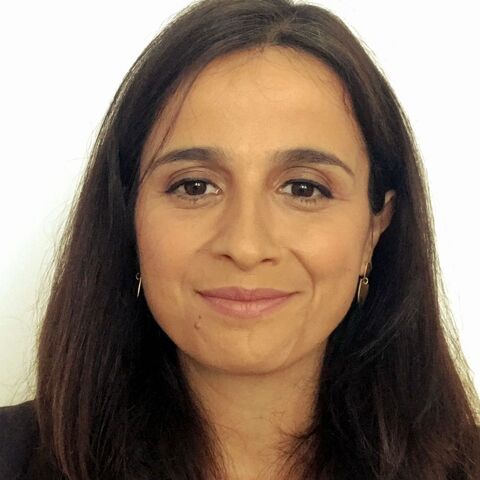As Sisi avoids Washington visit, Egypt courts China's tech giant Huawei
Egypt — whose president, Abdel Fattah al-Sisi, has visited Russia and China over the past five years but not Washington — is once again looking to China to boost its economy.
Hi, readers:
As the Middle East emerges from the shockwaves of the Iran-Israel war, one of its key players is making no secret of its pivot toward the East.
Egypt — whose president, Abdel Fattah al-Sisi, has made state visits to Russia and China over the past five years but not an Oval Office one to Washington — is once again looking to China to boost its economy. With domestic gas production dwindling and Israeli energy imports disrupted, Cairo is doubling down on its partnership with Chinese tech giant Huawei to expand its renewable energy and digital infrastructure.
This move builds on a wave of major Chinese investments in the Suez Canal Economic Zone, Egypt’s new administrative city and the first air force drills between the two countries.
What’s at stake for Egypt? How far is it willing to go?
Let’s unpack.
Thanks for reading,
Joyce & Rosaleen (sign up on LinkedIn or online here)
Leading this week
Egypt’s deepening energy partnership with China took center stage over the weekend as Huawei hosted Electricity and Renewable Energy Minister Mahmoud Esmat in Shenzhen, Jack Dutton reports. The two sides discussed a range of projects, including upgrading Egypt’s power grid, scaling up battery storage and relocating Huawei service centers to Egypt to support domestic manufacturing.
➡️ Huawei’s renewable energy arm is becoming a key element of Beijing’s pitch to Middle East and African states, and it presents an appealing offer: low-cost technology, financing options and a strategic alternative to Western multinationals.
➡️ For Egypt, the stakes are high. The country aims to generate 42% of its electricity from renewable sources by 2030.
Egypt’s energy peril
Cairo’s turn to Huawei isn’t happening in a vacuum. It comes on the heels of a punishing few weeks for Egypt’s energy sector, as Samuel Wendel reports.
When Israel struck Iran on June 13, prompting days of exchange of fire and a brief US intervention, one of the early economic casualties was Egypt. As Israel closed its offshore Leviathan gas field, gas flows to Egypt halted almost overnight. With Leviathan accounting for roughly 60% of Egypt’s gas imports, the disruption forced Cairo to divert supply from industrial sectors to households to prevent nationwide shortages.
It wasn’t only about gas, as Egypt’s markets also reacted sharply. The Egyptian pound slid 3% against the dollar, and the benchmark EGX30 stock index plunged 7% — one of the sharpest regional declines. While these economic indicators have since stabilized, the episode revealed just how brittle Egypt’s energy strategy has become.
Egypt, once a net liquefied natural gas exporter, was forced to begin importing its LNG in 2024. Add in Houthi attacks on Red Sea shipping, which have slashed Suez Canal revenues by more than half, and the picture becomes clearer: Egypt is in urgent need of alternatives.
Why Huawei? And why now?
Huawei may be best known globally for its smartphones and 5G infrastructure. But it is also a growing force in global energy tech. Huawei already enjoys a vast presence in Egypt. In 1999, it established its North African regional headquarters in Cairo. Then, in 2024, as Jack Dutton reports, Huawei launched an Arabic large language model (LLM) and Egypt’s first public cloud service in Cairo.
➡️ In February, Huawei signed a memorandum of understanding with Egypt’s Ministry of Petroleum and Mineral Resources to launch a pilot project using solar power, microgrids and battery storage to cut diesel use at oil wells.
➡️ In March, Huawei signed a cooperation agreement with state-controlled Telecom Egypt to help roll out 5G services nationwide.
More than batteries
China is already Egypt’s largest trading partner, with bilateral trade hitting $17 billion last year and more than 2,800 Chinese companies operating in the country. Egypt’s deepening partnership with Huawei, along with this week’s announcement of a $658 million Chinese-backed phosphoric acid plant in Egypt's New Valley, are the latest signs of China’s push into Egypt.
The chemical project, backed by China State Engineering Corporation and East China Engineering Science and Technology Company, will likely help to support Egypt’s fertilizer sector and its food and beverage production. The project's local partners include state-owned Misr Phosphate and Abu Qir Fertilizers.
Our take: Cairo is far from abandoning its partnership with the United States in favor of China, but it is testing the boundaries of how far it can deepen ties with Beijing without reaping Washington’s wrath. This comes as President Donald Trump, for six months now, has failed to pressure Israel into accepting a Gaza ceasefire, while his administration remains focused on cutting foreign aid and engaging in trade wars. For Egypt, China presents a safe and pragmatic partner — both in terms of public perception and shared economic and defense interests — so long as the relationship doesn’t threaten its longstanding ties with Washington. So far, it hasn’t.
Photo of the week
Deals and visits
- China Cargo, Saudia ink agreement to expand Asia-Europe connectivity
- Chinese imports of Iranian oil surge in June
- UAE, China launch Qingdao Overseas Integrated Service Centre
- Morocco’s tourism office signs memorandum of understanding with China Eastern Airlines
- China’s Hainan Airlines launches air route from Haikou to Jeddah
- UAE industry minister meets China’s finance minister during China visit
- Morocco launches $22 million agricultural partnership with China’s Jungnong Group
- Saudi Arabia, China sign deal to boost cultural collaboration
- China Eastern Airlines launches direct route between Xi’an and Istanbul
What we're reading
- Growing divisions hinder the BRICS international integration project: Atalayar
- China’s clean energy boom could win the race to power the future: The New York Times
- China’s Communist Party now has 100 million members, and many are in it for the paycheck: The Wall Street Journal

